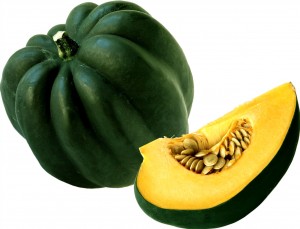There are many health benefits of consuming both winter and summer varieties of squash. Eating squash is a natural way to make your heart healthier, lower high blood pressure, and ward off cancer. Squash is considered a vegetable.
It is high in manganese, a mineral which helps the body process fats, carbohydrates, and glucose. It is also abundant in potassium, providing 345.60 milligrams per serving. Potassium is a key electrolyte in the balance of fluids and also provides muscle energy.
Winter squash typically includes your darker varieties of squash such as
pumpkin,
spaghetti squash
acorn squash
butternut squash
Benefits of Eating Squash
Low in Calories
A cup of yellow squash contains only about 36 calories, 7 grams of carbohydrates, less than one gram of fat, and a gram of protein. It is also cholesterol-free. The few calories it contains come mostly from its carbohydrate content, which is also particularly low. If you are trying to lose weight, yellow squash is a great choice to replace higher calorie vegetables like potatoes and corn.
Vitamin Rich
Yellow squash is a brilliant source of vitamin C and a very good source of magnesium, vitamin A (particularly in its concentration of carotenoids, including beta-carotene), fiber, folate, copper, riboflavin and phosphorus.
Cancer Prevention
Yellow squash is abundant in antioxidants that keep free radicals at bay. With its high beta-carotene content, yellow squash is a great source of protection from pollutants and chemicals that lead to cancer. It is also high in vitamin C, which helps prevent premature aging and cancer as well as inhibiting cell division.
Heart Health
Yellow squash contains negligable fat and no measurable cholesterol. One cup of squash contains about 0.2 g of fat. Cutting down on your fat and cholesterol intake is a giant step towards helping reduce your risk of heart disease.
Colon Health
At 2.52 grams per serving, the abundant fiber content of yellow squash is indispensable for the excretion of toxins from the body and is an extremely important nutrient for the colon’s health since it promotes regularity and adds bulk to the stool.
Prostate Health
Yellow squash has been shown to alleviate the symptoms of a condition named benign prostatic hypertrophy, or BPH. A man with BPH suffers from a problematically enlarged prostate gland, leading to difficulties with both urinary and sexual function.
Eye Health
Yellow squash is particularly high in concentrations of beta carotene and lutein. Dietary lutein helps to prevent the onset of cataracts and macular degeneration, which often leads to blindness. A cup of yellow squash provides about 135 micrograms of beta carotene and 2,400 micrograms of lutein.
Healthy Bones
Yellow Squash contains high levels of manganese and vitamin C. Manganese aids in maintaining healthy bone structure, calcium absorption, enzyme creation, and bone building. It also contributes to the mineral density of the spinal column.
Vitamin C aids in the production of collagen, which is essential for the building of bone mass, and magnesium is indispensible to the health of joints and bones. Iron, folate, zinc and phosphorous found in yellow squash all contribute to the mineral health of bones, and help fortify against osteoporosis.











